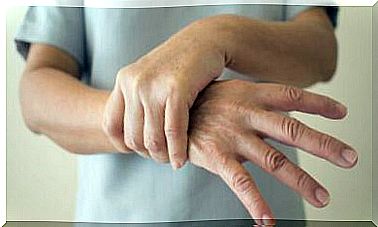Cognitive Reserve: A Crucial Step Forward In Brain Evolution
Cognitive reserve is a concept that originated in neuropsychology. It refers to the capacity of brain structures to respond to the loss of brain abilities or other negative changes. In other words, cognitive reserve is the brain’s ability to respond appropriately regardless of illness, old age or degradation. Up to a certain point, this allows the brain to compensate for any damage that may occur.
High cognitive reserve can sometimes cause the brain to function normally after an illness. It can also keep the brain fully active, despite natural wear and tear that increases with age. As you probably understand, it is very important to cultivate and maintain this important function.
The origin of cognitive reserve
The cognitive reserve begins to form as soon as the baby’s brain develops in the womb. The experiences from the first years of life are crucial. They largely determine the direction in which the development of intelligence goes.

Genetic factors probably affect the formation of the cognitive reserve. Still, this is not the alpha omega. There are ways to stimulate the brain to increase this property throughout life. It can even increase even after brain damage.
Intellectual, recreational and sports activities have all been shown to be effective in increasing the cognitive reserve. Reading, mental games, language learning, dancing, sports and intellectual stimulating activities are especially useful.

Stimulate the cognitive reserve
With good cognitive reserve , the brain will be able to make new connections between neurons and replace damaged neurons. This process is much easier for those who have performed activities with the following characteristics:
- Higher cultural level. By this is meant a set of collective studies, reading and activities of an intellectual nature. Such activities protect the brain against mild cognitive impairment that occurs, for example, in old age.
- Social conditions. Researchers have proven that those who have the support of a good social circle, and who often associate with the people in it, have a 38% lower chance of developing dementia.
- Physical training. This increases the brain’s blood circulation and protects it from oxidative stress and other factors associated with old age.
- Mental training. A factor that clearly increases the cognitive reserve. This includes activities such as playing a musical instrument, pursuing intellectual hobbies, etc.
A healthy diet also helps maintain a strong brain. Smoking, drinking and psychoactive substances should be avoided. Outdoor hiking is another beneficial activity.
A surprising experiment
David Snowdon, a doctor of epidemiology and professor of neurology at the University of Kentucky, conducted an impressive study in 1986. He assembled a group of 678 Catholic nuns from the United States. The group was very uniform: they ate the same food, lived in the same environment and did the same activities.
He monitored their cognitive reserves for 17 years. They were regularly tested over the years and genetic, intellectual and psychological data were collected. Everyone agreed that their brains would be studied after they died to complement the information from the experiment.

Sister Bernadette’s case was the most remarkable. After she died, aged 85, researchers studied her brain. They found out she was suffering from Alzheimer’s. Still, she showed no symptoms of this as long as she lived. The researchers concluded that her cognitive reserve had compensated for any physiological deficiencies.
The researchers also discovered something else interesting. The nuns who had larger vocabulary showed less signs of cognitive impairment as the years went by. This vocabulary arose as a result of eager readership in childhood.
This experiment is one of the most convincing arguments in favor of intellectual, social and physical training, to expose the natural impairment of our cognitive abilities.









